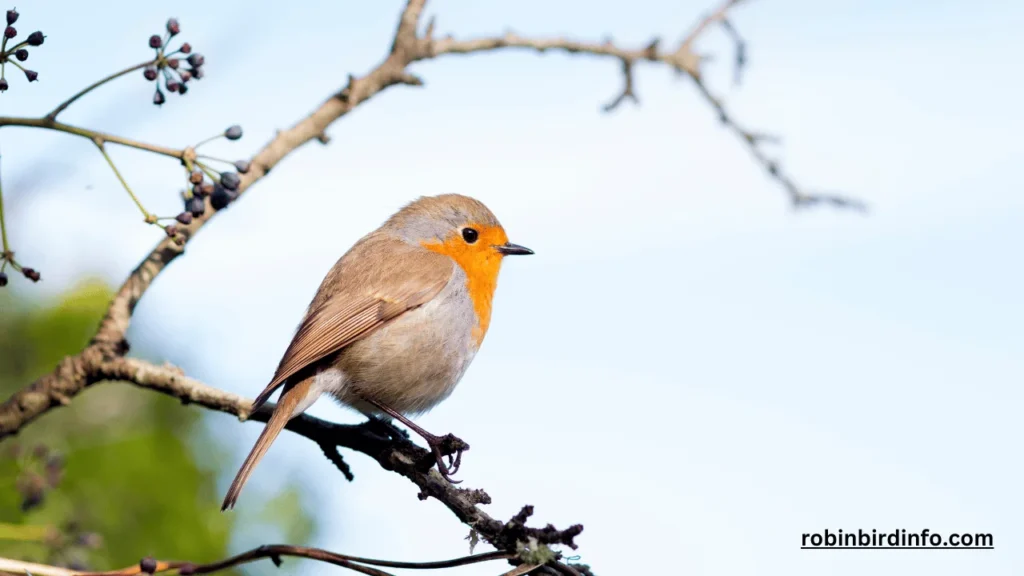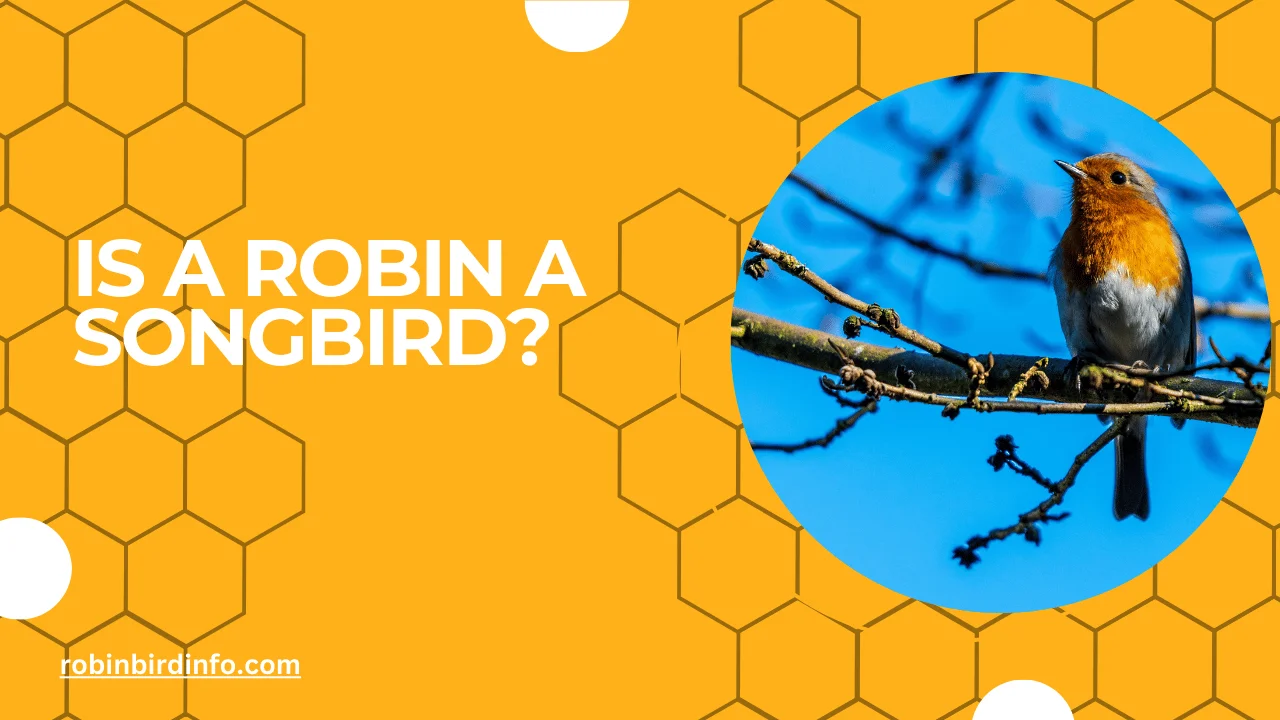Have you ever been dive-bombed by a robin in your own backyard?
It might sound comical, but the tiny red breast you’ve always associated with cheerful melodies can suddenly transform into a fierce defender. This surprising aggression isn’t a random quirk – it’s a deeply ingrained instinct tied to their survival and the continuation of their species.
Despite their charming carols and friendly demeanor, robins are surprisingly territorial birds. Their seemingly harmless chirps can morph into a symphony of territorial squawks when another robin dares to encroach on their claimed space.
This aggressive behavior, while unexpected, highlights a fascinating aspect of robin biology: their constant struggle to secure resources and ensure the safety of their offspring.
Understanding the reasons behind a robin’s territoriality isn’t just about appreciating their complex motivations. It can also help us coexist with these feathered neighbors more harmoniously.
By delving into the world of robin aggression, this blog post will shed light on the factors that trigger their defensive displays and ultimately help you appreciate the songbird in a whole new light.
Contents
Section 1: Defining Songbirds
Key Characteristics: Songbirds, also known as passerines, are a diverse group of birds characterized by their ability to produce complex vocalizations. Key characteristics of songbirds include a specialized vocal organ called the syrinx, a complex brain structure for song learning and production, and a wide range of social behaviors.
Evolutionary Significance: The evolution of song in birds is a fascinating topic. Songbirds have evolved intricate vocalizations for various purposes, including attracting mates, defending territories, and communicating with other individuals. These complex vocalizations have played a crucial role in their diversification and ecological success.
Section 2: The Vocal Anatomy of Robins
Syrinx: The syrinx is a unique vocal organ found only in birds. It is located at the base of the trachea and consists of specialized muscles and membranes that vibrate to produce sound.
Muscle Control: Robins have precise control over the muscles that operate the syrinx, allowing them to produce a wide range of sounds, from simple calls to complex songs.
Section 3: Robin Songs and Calls
Song Types: Robins produce a variety of songs and calls, including:
- Territorial songs: Used to defend territory and attract mates.
- Mating songs: Sung to attract mates and strengthen pair bonds.
- Alarm calls: Used to warn other birds of potential danger.
Song Function: Robin songs serve multiple purposes, including:
- Mate attraction: Males sing to attract females and showcase their quality as a mate.
- Territory defense: Males sing to defend their territory from other males.
- Social bonding: Song helps to strengthen social bonds between pairs and within flocks.
Section 4: The Role of Song in Robin Behavior
Social Bonding: Song plays a crucial role in social bonding between Robins. Pairs often sing duets, which helps to strengthen their bond and coordinate their activities.
Territory Defense: Male Robins use song to establish and defend their territories. They sing to advertise their territory and deter intruders.
Attracting Mates: Male Robins use their songs to attract females. Females choose mates based on the quality and complexity of their songs.
Section 5: Conservation Implications

Habitat Loss and Fragmentation: Habitat loss and fragmentation can negatively impact Robin populations by reducing the availability of suitable nesting and foraging sites. This can disrupt their breeding and migration patterns.
Noise Pollution: Noise pollution from human activities can interfere with Robin communication. Excessive noise can mask their songs, making it difficult for them to attract mates and defend their territories.
Conservation Strategies: To protect Robin populations, it is important to conserve their habitats, reduce noise pollution, and promote bird-friendly practices.
Conclusion
Robins are truly remarkable songbirds, with complex vocal abilities and intricate social behaviors. By understanding their songs and the role they play in their lives, we can appreciate these birds even more.
It is our responsibility to protect their habitats and ensure that their beautiful songs continue to fill our world.
FAQ’s
Why do Robins sing?
Robins sing for various reasons, including attracting mates, defending territory, and communicating with other birds.
When do Robins sing the most?
Robins typically sing more frequently during the breeding season, especially in the early morning and evening.
Can female Robins sing?
Yes, both male and female Robins can sing. However, males tend to sing more frequently and with greater complexity.
Do Robins sing all year round?
No, Robins primarily sing during the breeding season. Their song frequency decreases during the non-breeding season.
Can Robins mimic other birds?
While Robins are not known for their mimicry abilities, they can sometimes imitate the calls of other bird species.
How does noise pollution affect Robin songs?
Noise pollution can interfere with Robin communication. Excessive noise can mask their songs, making it difficult for them to attract mates and defend territories.








